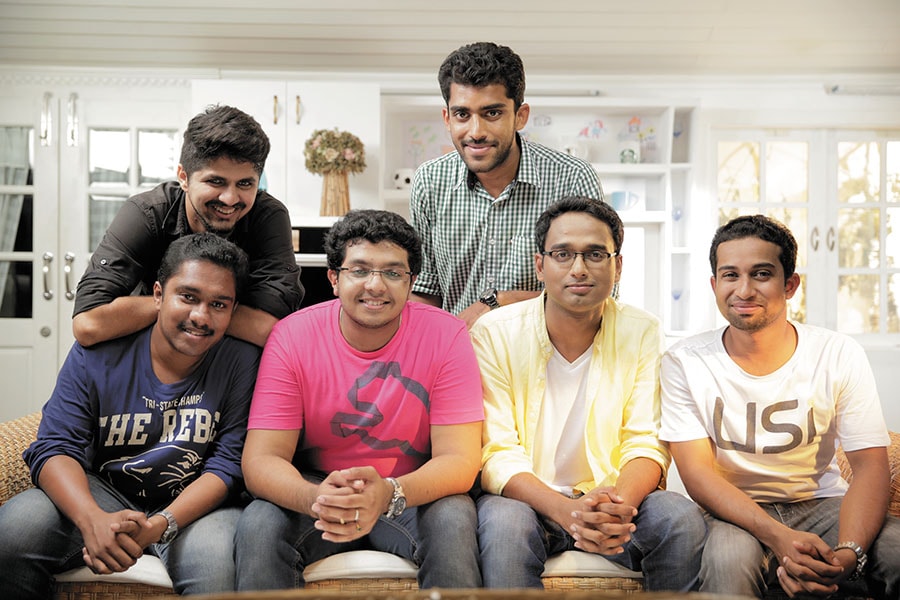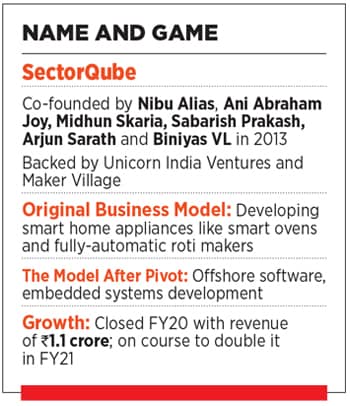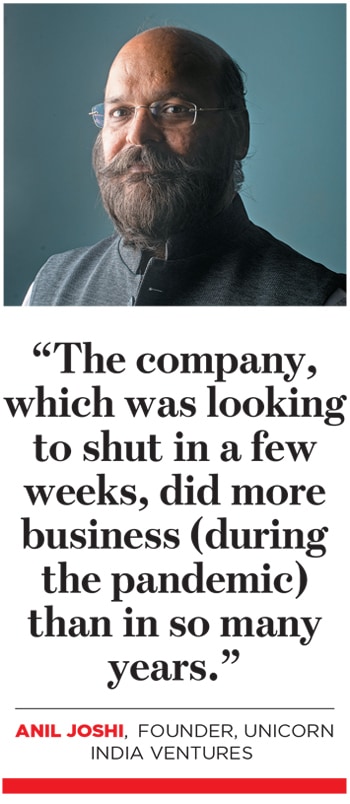
How we survived: SectorQube pivots but remains 'smart'
Smart home appliances maker was ready to roll out fully-automatic roti makers. Then came Covid-19
 Team SectorQube: (Sitting, from left) Sabarish Prakash (CTO, software), Ani Abraham Joy (COO), Nibu Alias (CEO) and Arjun Sarath (CBDO). (Standing, from left) Biniyas VL(CMO) and Midhun Skaria (CTO, hardware)
Team SectorQube: (Sitting, from left) Sabarish Prakash (CTO, software), Ani Abraham Joy (COO), Nibu Alias (CEO) and Arjun Sarath (CBDO). (Standing, from left) Biniyas VL(CMO) and Midhun Skaria (CTO, hardware)
'How We Survived' is a series of stories on businesses—big and small—that innovated or pivoted during the coronavirus crisis to survive. For all the stories in this series, click here
Staying in the kitchen is not easy, especially if one can’t stand the heat. Six classmates from Kochi, who started their entrepreneurial journey in 2013 by rolling out Internet of Things (IoT) startup SectorQube, were willing to grind it out. The fledgling venture, which was into developing smart kitchen devices, got bruised in 2016. Blame it on ‘Maid’.
Maid (make all incredible dishes) was the brand name for a smart multi-functional oven that could be controlled via touch, gesture and voice, had a personalisation engine, and a recipe database. There was only one problem though. “The project was too advanced for the market,” rues co-founder Nibu Alias. The technology was subsequently licensed to appliance maker IFB.

Cut to March 2020. Alias and his team were ready with another smart appliance: A fully-automatic roti maker. SectorQube was in the last stage of talks with several big manufacturers to roll out the product. Then came the pandemic. The project was put on the back-burner, the supply chain—some critical components coming from China—got disrupted; and the startup pivoted. “We pivoted our electronics team to work on projects that do not require extensive R&D and resources,” says Alias. The result has been encouraging. SectorQube has been earning both from software as well as electronics projects.
(This story appears in the 30 November, -0001 issue of Forbes India. To visit our Archives, click here.)

 Then came the pivot. The team began taking up software development projects using existing resources and turned around the company. “SectorQube, which was looking to get shut in a few weeks, did more business than what it did in so many years,” claims Joshi. While the company will continue to work on smart appliances, the new business line has given a new dimension to growth. “SectorQube has taught us that nothing is impossible if you wish to make things happen,” he adds.
Then came the pivot. The team began taking up software development projects using existing resources and turned around the company. “SectorQube, which was looking to get shut in a few weeks, did more business than what it did in so many years,” claims Joshi. While the company will continue to work on smart appliances, the new business line has given a new dimension to growth. “SectorQube has taught us that nothing is impossible if you wish to make things happen,” he adds.




